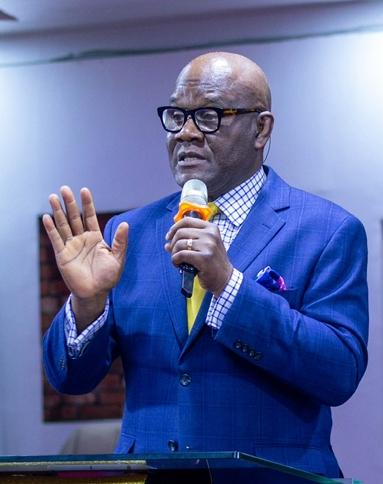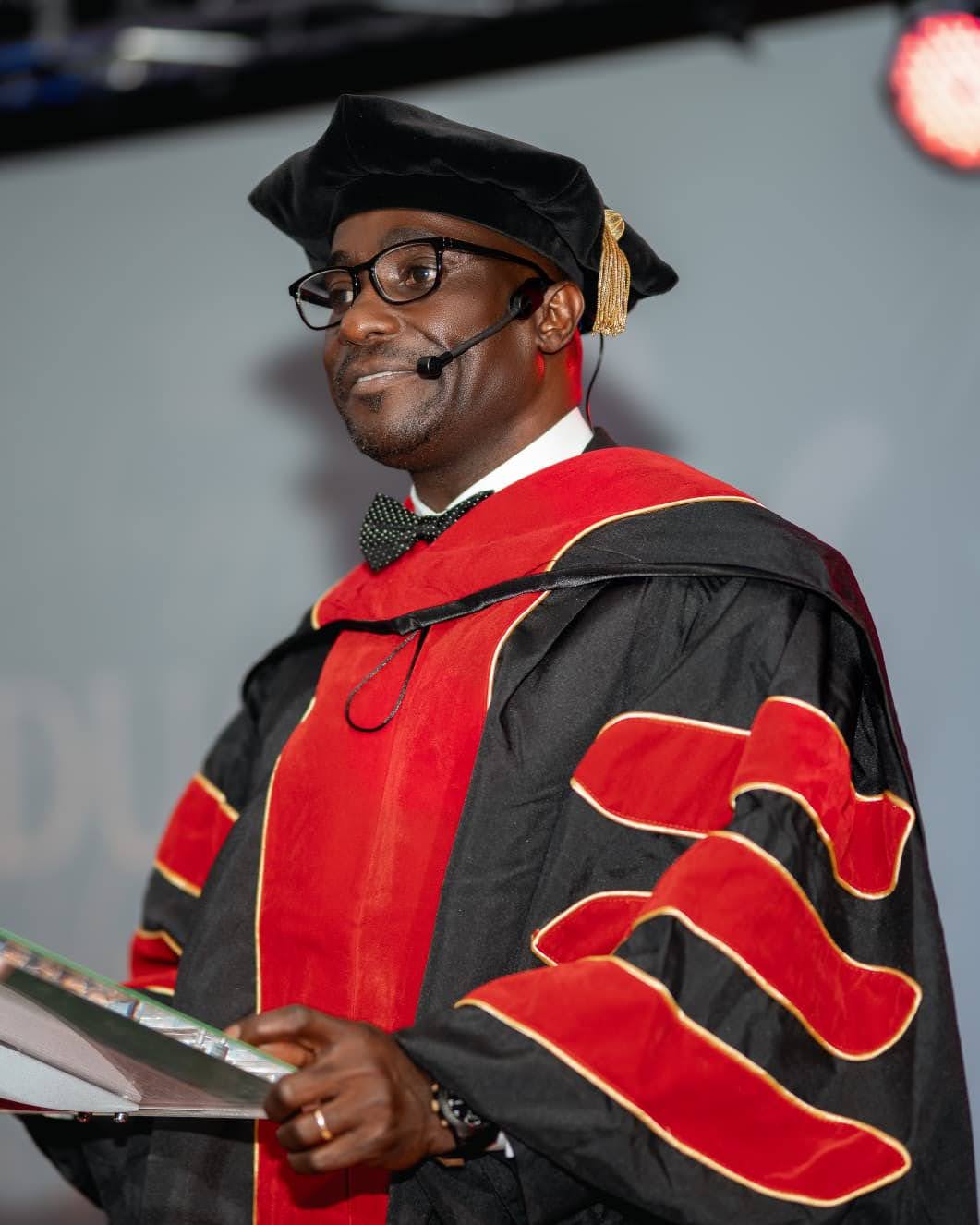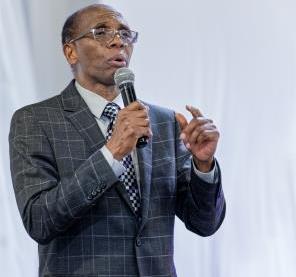‘‘We receive grace from God to become grace dispensers.’’ -Pastor Vincent Omegba
Introduction
Pastor Vincent Omegba’s journey into ministry is a remarkable one. From his early days as a trainee Catholic priest in Nigeria to a distinguished legal career, his spiritual transformation speaks volumes of a life dedicated to God’s service. Alongside his wife of over three decades, Pastor Priscilla, their faith-centered family attests to the enduring power of commitment. From establishing the first RCCG branch in the Denver metro area to overseeing a thriving network of churches across two states and spearheading impactful community development initiatives like Hope Hall Inc., Pastor Vincent’s story is one of answered calling, resolve, and a deep desire to see lives transformed by the saving power of Jesus Christ.
Join Afrik Digest as we hurtle into the inspiring background and expansive vision of this influential leader.
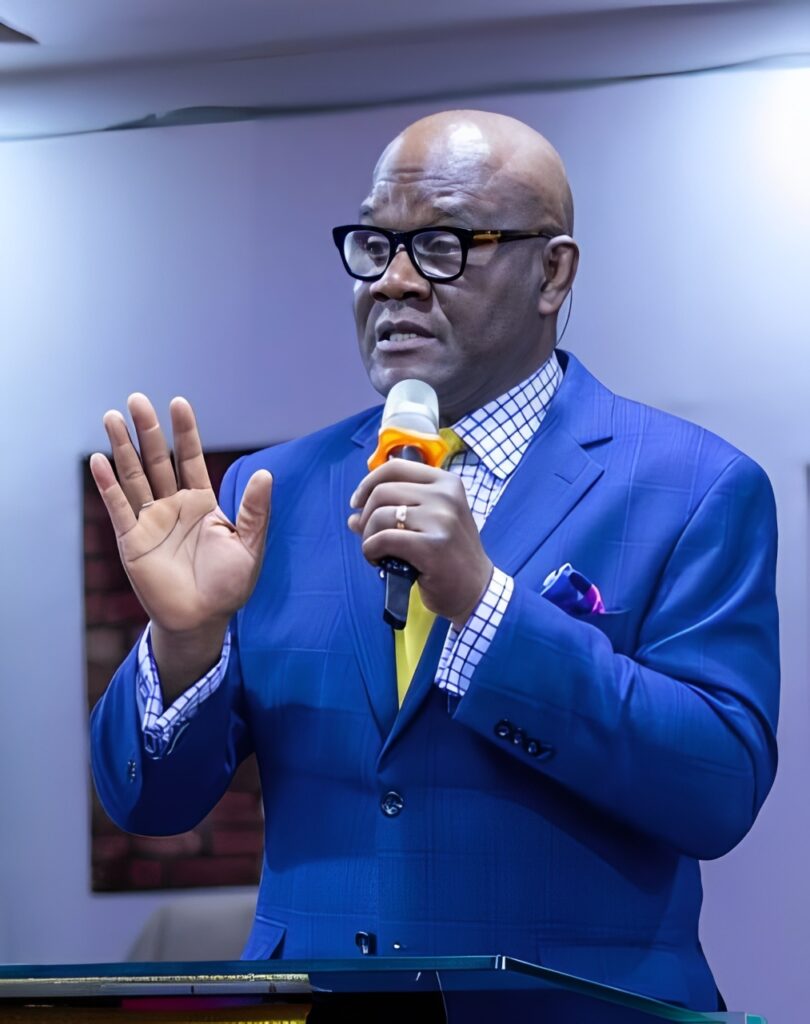
My Background and My Calling
I am a missionary servant of God from Nigeria, dedicated to spreading the message of hope in Jesus Christ. Blessed with over 35 years of marriage to Pastor Priscilla Omegba, we have built a strong faith-centered family with four children and four grandchildren.
My journey in ministry began at a young age, serving as a Catholic Mass server in Agenebode, Edo State. Though trained as a Catholic priest at Saint Paul’s Minor Seminary, I chose a different path—longing for family and fatherhood, a calling that was not permitted within that tradition.
In 1985, I earned my law degree from the University of Jos and was called to the Nigerian Bar as a Barrister and Solicitor. However, my spiritual transformation came in 1997, when I fully surrendered my life to Christ, joining the Redeemed Christian Church of God (RCCG) and completing Bible College training in Lagos.
I served as a bi-vocational preacher in Lagos until 2003, when I was sent to Denver, Colorado to establish RCCG Dayspring Centre (RCCGDC)—the first RCCG branch in the Denver metro area.
Today, I serve as the Provincial Pastor of RCCG, overseeing ten branches across Colorado and Missouri. Beyond ministry, I lead Hope Hall Inc. (www.hopehall4all.org), our community development arm, providing affordable housing to those in need—a mission that has helped over 100 individuals since its inception in 2010.
Additionally, I am an organizational psychologist and consultant, bringing wisdom and strategic insight to both ministry and community outreach.
Our Vision and Mission
Our calling is to transform lives across all backgrounds—ethnicities, ages, and socioeconomic positions—through the saving power of Jesus Christ.
- Spreading hope: Sharing the redemptive message of Christ with individuals searching for peace, purpose, and renewal.
- Being ambassadors of God’s kingdom: Demonstrating God’s love, mercy, and grace through compassionate service and genuine relationships.
- Building mature believers: Equipping members to grow in faith, become strong disciples, and serve both God and community with conviction.
At RCCG Dayspring Centre, our mission is not just to preach—but to uplift, restore, and empower, ensuring that every soul encounters the life-changing power of Jesus Christ.
Community Partnerships and Ministry Initiatives
When I first arrived in Denver, I had no clear roadmap for ministry—I didn’t yet understand the community’s needs or how best to serve. Seeking guidance, I approached Colorado Community Church, hoping to launch a computer school to help students with homework. At the time, we had a large hall used only for children’s church on Sundays, leaving it empty throughout the week.
After assessing our space, the church donated 12 computers, installed Wi-Fi, and helped us establish an after-school program. By God’s grace, several computer science students from Denver University joined the effort, teaching and mentoring students—a beautiful example of churches collaborating to empower the next generation.
Beyond this, I remain actively involved in the Colorado Association of African Pastors, an initiative dedicated to supporting pastors, their families, and churches in need. Through this network, we assist ministries facing challenges, offering resources, guidance, and solidarity.
One of the hallmarks of my ministry in Denver has been prison outreach—a calling I stumbled upon while volunteering at Veterans Village, a nonprofit serving homeless veterans. During my outreach, I met a man on parole, who later violated his parole conditions and was sent back to prison. When I learned he had no relatives—no father, no mother, no siblings—I felt a deep conviction to visit him.
Prison visits require paperwork, and I was initially denied entry due to an expired ID and immigration status. But I persisted, returning the next day. From then on, I visited him monthly, attended his parole board meetings, and became his advocate when no one else stood for him.
Six months before his sentence was set to end, his good behavior led to an early release—on the condition that he had stable housing. Without hesitation, I offered him a vacant basement in our home. However, I hadn’t considered that ex-felons—even non-sex offenders—couldn’t live near childcare services, and my wife was in the process of launching a licensed childcare center.
Realizing we needed another solution, I reached out to his distant relative, who was reluctant at first but ultimately sent $3,000 to help. With this, we secured his first month’s rent, provided cash, a bicycle, and clothing—but I felt called to do more.
That’s when God gave me an idea—a housing ministry for people like him. We searched online and found a run-down home, its roof on the verge of collapse and weeds overtaking the yard. With $2,200 left, we paid rent, but we needed help renovating.
By divine orchestration, I connected with Extreme Makeover Ministry, a nonprofit that assists low-income homeowners with repairs. Within two weeks, they invested over $10,000, repairing the roof, garage, and structure—a transformation that could only be God’s work in motion. Thus, a housing ministry was born—one we never intended to start but one God placed directly in our path.
In addition to providing housing, we operate a food bank, distributing 100 boxes of food each month to families in need. With a simple drive-through system, people receive food without judgment, ensuring that no one in our community goes hungry.
We also offer healthcare services, partnering with organizations focused on African immigrant health—researching HIV, AIDS, and COVID responses to better serve our communities. God has continuously expanded our ministry beyond what we could have imagined, reinforcing that true service is often born out of unexpected encounters with human need.
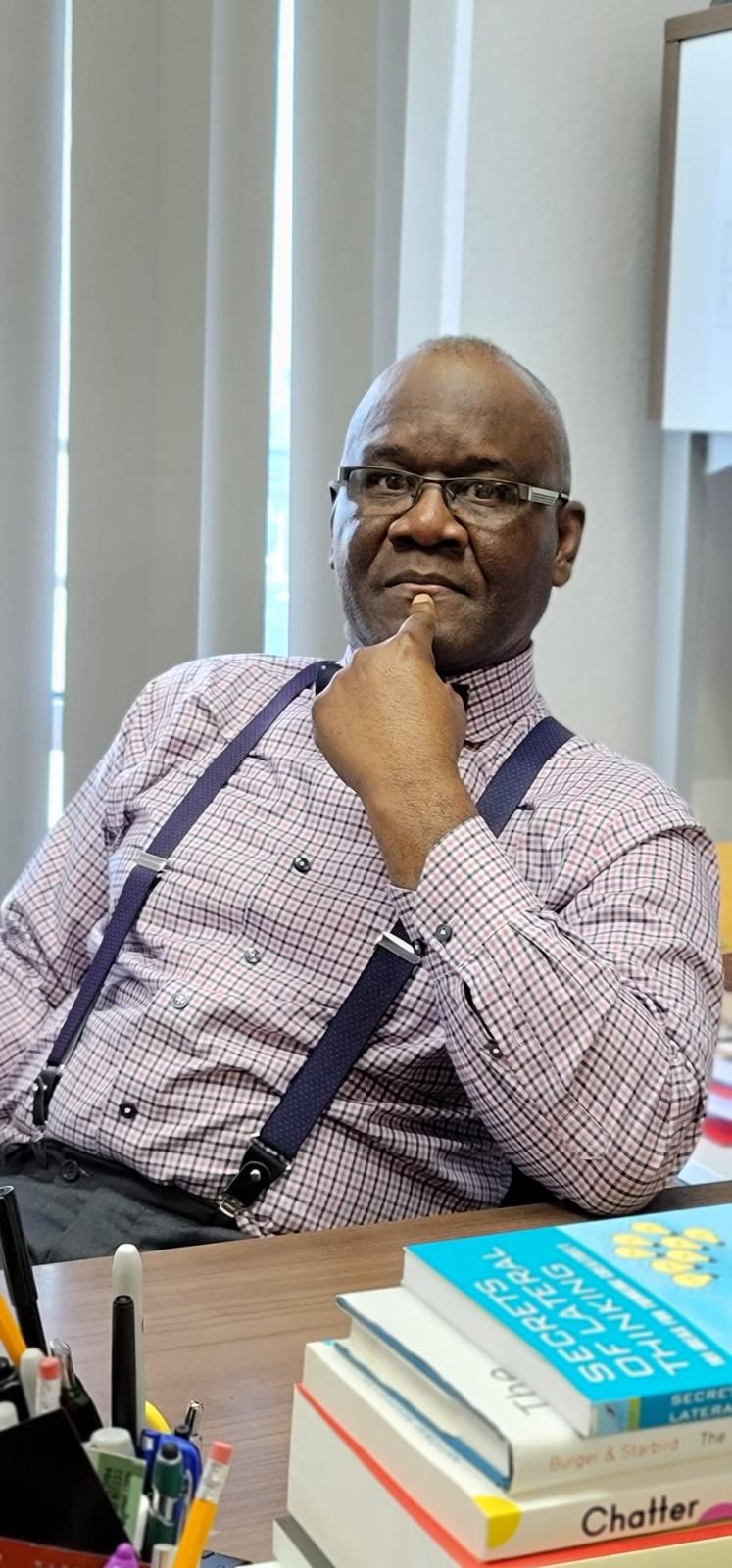
Faith in Today’s World
Reflecting on my pastoral experience in Nigeria, particularly in Ejigbo, Lagos, I initially approached ministry in America with the same mindset. However, I quickly discovered key differences in how faith communities function here.
In many Nigerian churches, people love God deeply, yet their service is often shaped by fear rather than love. Miss a vigil, and it’s considered a serious offense. Fail to attend a church event, and repercussions follow. This approach does not reflect the spirit of the New Testament Church, which calls for willing service, not forced obligation.
In America, leadership must rely on vision, not control. People are busy, independent, and must feel a personal connection to ministry. Consider Mary-Magdalene Chumbow, who is here today—not because she is obligated, but because she has embraced the vision of the church. Her service flows from intrinsic motivation, a desire to worship God through her work, not coercion.
This is the true framework of ministry—a calling to serve others, not oneself. As Paul said, “What I received from the Lord I give unto you.” Ministry is about giving, not receiving, about helping destinies unfold rather than controlling them. This is the principle we live by—to serve with humility and uplift those around us.
The Power of Worship and Honoring Cultural Identity
Worship is more than music—it is the fabric of Christian life. We worship God through obedience, through the way we live, and through the music we offer in praise.
While music is universal, it carries distinct expressions across cultures. In Africa, worship is loud, energetic, and deeply expressive. Yet, some congregants from other cultural backgrounds may prefer quieter forms of worship.
To embrace diversity, our church has structured worship so that only one Sunday a month—Thanksgiving Sunday—is dedicated to global music. On this day, you will hear African, Cameroonian, Kenyan, and Congolese worship songs, celebrating the richness of different traditions.
On other Sundays, we focus on contemporary worship, featuring music that resonates with Hispanic, African-American, Caucasian, and other communities. It remains vibrant, but intentionally welcoming to all.
Still, worship preferences vary. For example, we once had a white couple visit our church—the wife, an African-American woman, loved the experience, while the husband found it too loud and waited in his car, watching the service on his phone instead.
This reminds us that music, though central, must be balanced—ensuring no one is alienated by worship styles, while still celebrating the cultural expressions that make our faith rich and dynamic.
Meeting the Spiritual and Social Needs of a Diverse Community
As a doctoral candidate in industrial and organizational psychology, I have gained deeper insight into diversity, equity, and inclusion—a crucial foundation for engaging with people from varied backgrounds and belief systems. The truth is, many immigrants—whether Christian, Muslim, or from other faith traditions—share a deep spiritual connection. Their desire to seek and understand a higher power creates common ground for meaningful conversations.
Love, at its core, is universal—it transcends religion and culture, offering a bridge for collaboration. That’s why I work with leaders across different faiths, including the African Leadership Group, founded by a Muslim leader from Senegal. His journey from a non-English-speaking newcomer to a respected banker was so compelling that I invited him to share his financial expertise with our congregation. Despite initial skepticism from some church leaders, his budgeting and financial literacy session proved invaluable—even those who questioned his presence ended up collecting his business cards as he left. The lesson? Wisdom knows no religious boundaries, and practical knowledge empowers lives regardless of faith.
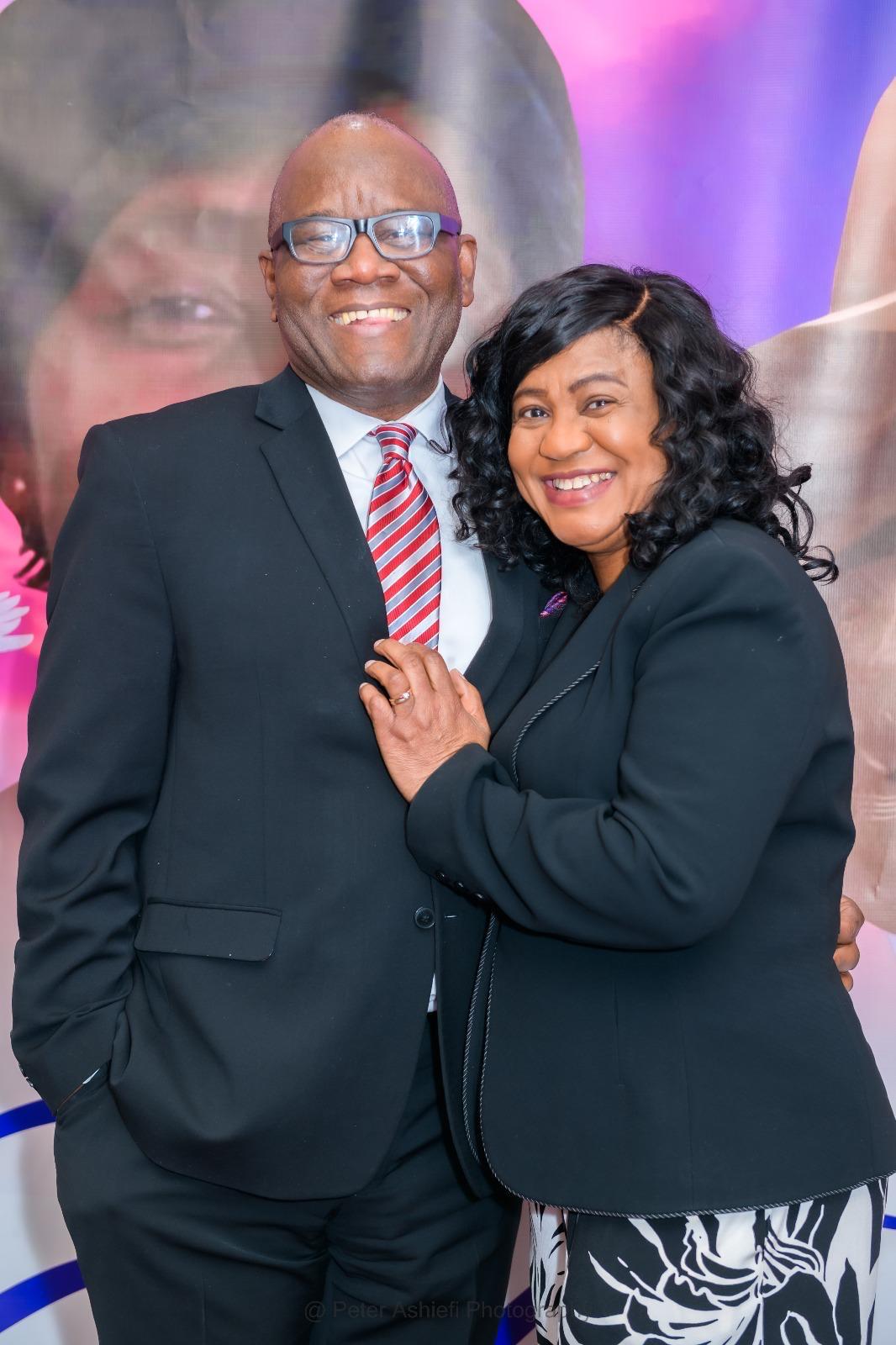
Navigating the Realities of Ministry in an Immigrant Community
One of the greatest challenges we face in church ministry is balancing faith with work demands. Many immigrants juggle multiple jobs, often missing services for weeks at a time. This reality requires flexibility in how we minister to them.
To meet this challenge, I’ve embraced my role as a “pastor on demand”—making myself available outside traditional church settings. Whether through phone calls, Zoom meetings, or workplace visits during break hours, I ensure that no one is left spiritually disconnected.
Faith should be accessible, adaptable, and rooted in relationship, and by meeting people where they are, we ensure that ministry remains alive in their daily lives.
Challenges in Our Mission
As a pastor, husband, and father, I have encountered many challenges, both personal and ministerial. Yet, I have learned that real-life storytelling and openness make abstract teachings more relatable. By sharing struggles, I help others see that faith is a journey, not a destination. When people witness vulnerability in leadership, they realize that overcoming obstacles is possible, and that God’s grace sustains us all.
One of the greatest challenges in ministry is resources—as the saying goes, “ministry runs on the wheels of money.” Without financial support, churches struggle to fulfill their mission. This is why we emphasize giving, while maintaining full transparency in our stewardship. Through the faithful contributions of our members, we were able to purchase our over $1 million church property three years ago, a testament to God’s provision and the power of collective commitment.
Inspiring the Next Generation
There is a common misconception that younger generations are less spiritual, but this is simply a myth. In truth, their connection to faith is often deeper than many realize—they simply express it differently. Through my studies in organizational leadership, particularly in intergenerational workplace behavior, I have gained insight into how each generation interacts with faith and society. From the Silent Generation and Baby Boomers to Generation X, Y, Z, and now Alpha and Beta, every group shapes its spiritual outlook based on the era in which they were raised.
For instance, Generation Z, often labeled as entitled, grew up during America’s economic downturn in 2008, a period when many families struggled financially. Some children lacked internet access at home, making homework difficult after libraries closed. These experiences shaped their outlook. Many feel the need to secure opportunities quickly, leading to behavior misinterpreted as entitlement when, in reality, it is a response to survival instincts. Understanding the generational context allows us to bridge the gap and meet young people where they are, rather than where we assume they should be.
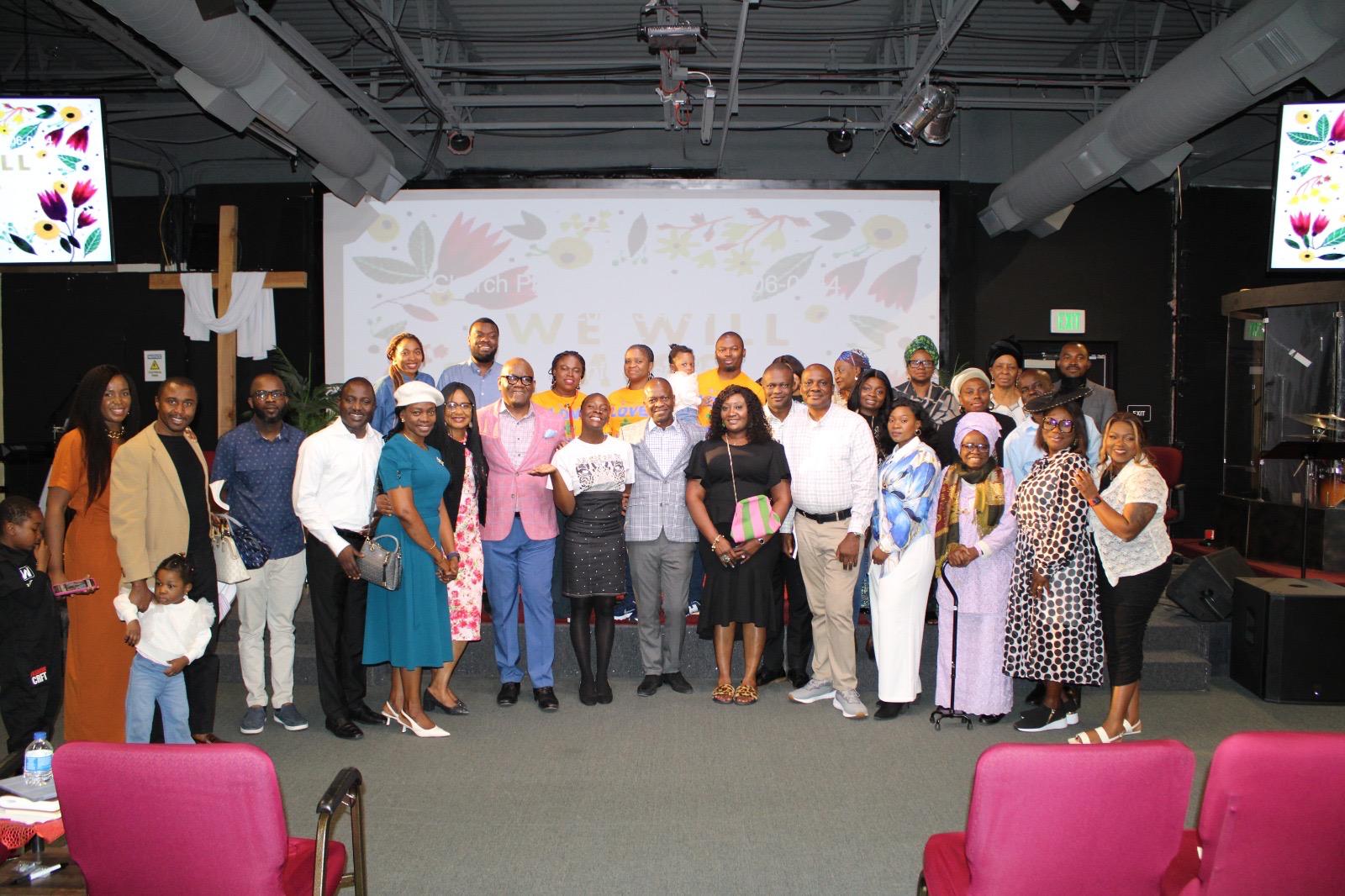
What Sets RCCG Dayspring Centre Apart
At RCCG Dayspring Centre, our mission extends beyond preaching—we actively build bridges. We approach ministry with inclusivity, wisdom, and non-threatening engagement, ensuring that our faith is an invitation, not a barrier.
Regardless of background, we welcome all people, striving to bring communities together rather than creating walls of separation. Through compassion, outreach, and Christ-centered values, we embody the true message of God’s love—a faith that uplifts, restores, and unites.
Adapting to Changing Times
Knowledge is not just about scripture—it’s about continuous learning in all areas of life. Many would assume that Warren Buffett, a billionaire investor, spends his mornings reading The Wall Street Journal or Financial Times. But in reality, he often reads about geology, nature, and science—subjects seemingly unrelated to finance. Why? Because true leadership is about gaining wisdom from everywhere, not just within one field.
For me, leadership is everything—I firmly believe that every organization, church, or family rises and falls on leadership. This belief drives me to constantly pursue knowledge and teach adaptive leadership, a concept I designed specifically for pastors.
Adaptive leadership acknowledges shifts in:
* Technology
* Generational behavior
* VUCA situations (volatile, uncertain, complex environments with no precedents to follow)
COVID-19 tested the ability of churches to adapt. Many struggled with online services, while traditionalists insisted on in-person gatherings. While physical fellowship is essential, ministry must evolve to meet reality, and we discovered that younger generations naturally adjust more quickly than older ones.
However, both wisdom and adaptability are needed. The elders bring experience, while the youth bring strength—as scripture says, “The glory of the youth is their strength.” This is why we embrace reverse mentoring, where the older generation mentors youth in life and spiritual wisdom, and the younger generation teaches seniors technology and modern advancements.
A perfect example is our oldest church member, an 84-year-old woman who struggled with logging onto Zoom during the pandemic. A young congregant stepped in to teach her, restoring her ability to connect and worship with the church remotely.
We also teach adaptability in simple, everyday ways. If someone sees water on the bathroom floor, instead of waiting for the maintenance team, we encourage them to grab a mop and clean it. Not only does this serve others, but it also prevents accidents and potential lawsuits, sparing the church financial burden. This mindset of proactive service is what we aim to instill—not just in church leaders, but in every member of the congregation.
Biblical Principles That Guide Leadership and Decisions
Leadership, at its core, must be servant-hearted. Jesus Himself modeled servant leadership, declaring, “The greatest among you shall be your servant.”
A leader is not meant to rule over people, but to uplift them. When leaders serve, they gain genuine appreciation and respect. A great example unfolded at our church when a visiting woman from Nigeria was brought in by an Uber driver. He was a white, elderly man—someone who, by societal stereotypes, might have been assumed to be prejudiced toward our congregation.
Yet, I saw an opportunity to break barriers. Before he left, I tipped him $15 for a $14 ride—a small act of generosity, but a powerful statement. In that moment, he recognized that our church was different. He saw kindness, not division. He saw Christ-like love, not judgment. These moments are the foundation of servant leadership—leading by example, building connections through compassion, and demonstrating Christ’s heart in our everyday interactions.
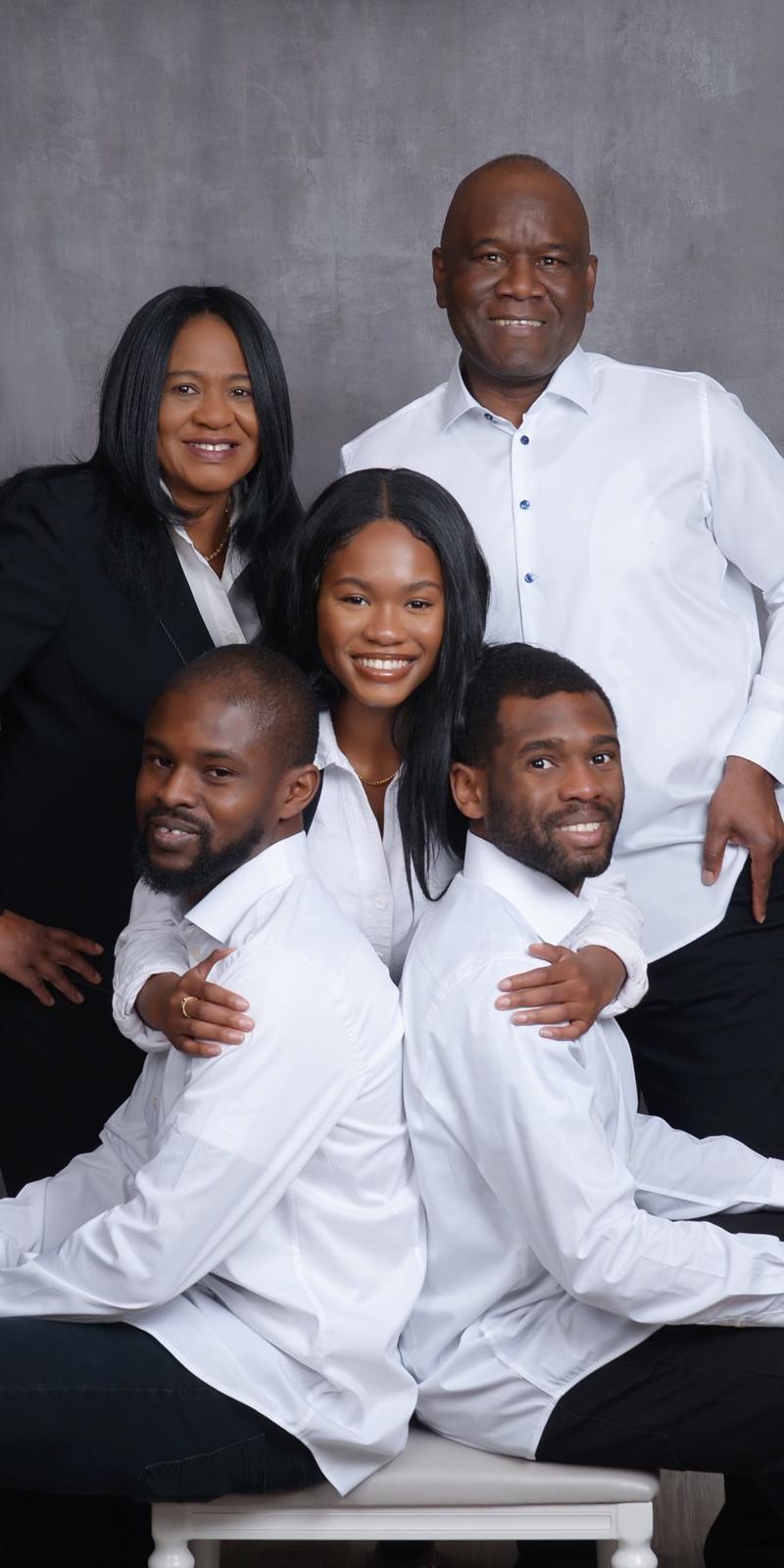
Expanding the Vision
As Provincial Pastor of RCCG, my calling has become increasingly apostolic. With ten churches under my supervision across Colorado and Missouri, my commitment to spiritual oversight and mentorship requires greater travel and engagement. My vision is to spend time within each congregation, ensuring that the culture of service, love, and respect we have cultivated continues to thrive.
Additionally, doors are opening in Africa for expanded ministry efforts. The foundation of our church is service, and while we have made significant progress in building a strong community, our next phase focuses on empowering members to lead. The goal is for the church to function effectively, even in the pastor’s absence, driven by a unified mission and shared commitment.
One of our key initiatives is the launch of childcare services, utilizing the land behind our church to build a facility capable of accommodating 100 children. This will be an employee-owned business, ensuring that workers receive industry-leading compensation to provide exceptional care and services. Not only will this help sustain our missionary work, but it will also create employment opportunities for those in need—both within the congregation and the larger community.
God’s Vision for RCCG Dayspring Centre: Church Planting and Community Development
We strive to be a church that, if ever absent from our city, would be deeply missed—not just for spiritual nourishment, but also for the tangible support we provide. Our mission is to spread the Good News, but more importantly, to back it up with action—offering practical solutions, compassionate outreach, and spaces for healing and growth.
In a world flooded with bad news, we want to be a beacon of hope, where the wisdom and power of God are so evident that people embrace faith with joy, rather than being weighed down by despair. We need more Holy Spirit-led churches, where transformation happens visibly and where the community recognizes the church as a pillar of strength, care, and unwavering love.
A Book That Defines My Faith: The Gospel of John
Among the Gospels, John stands out because it presents Jesus as God, the fullness of divinity in human form. One verse that encapsulates the essence of Christ’s mission is John 3:16:
“For God so loved the world that He gave His only begotten Son, that whoever believes in Him should not perish but have everlasting life.”
This scripture is a cornerstone of hope, reinforcing that our faith is rooted in love, sacrifice, and redemption.
Leaving a Legacy
Above all, I want to be remembered as a leader shaped by God’s wisdom—one who led not through status, but through service. My greatest desire is to leave behind a church that flourishes beyond my tenure, a community that carries forth the values of faith, knowledge, and compassion, and a mission that continues to transform lives for generations to come.


